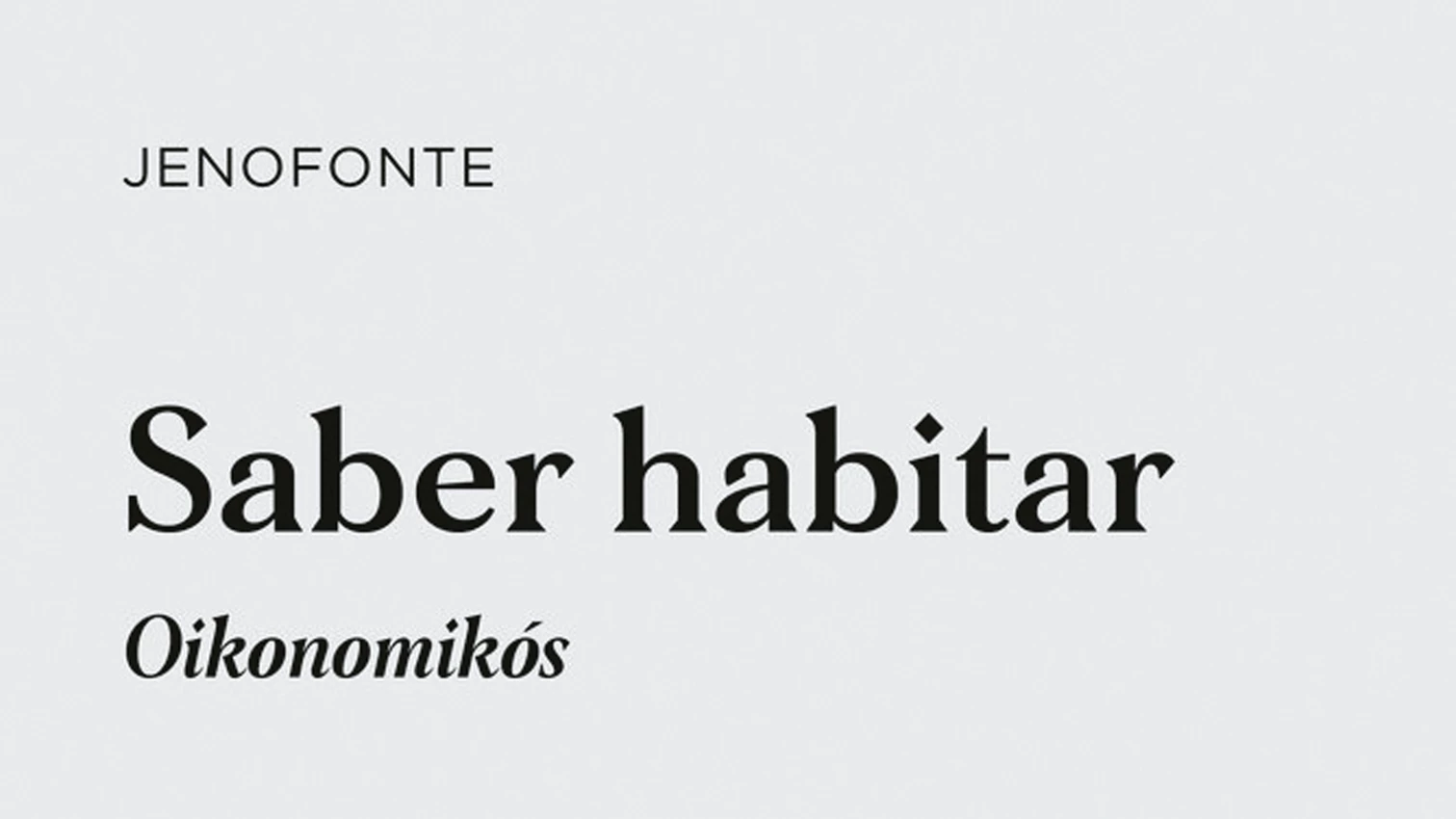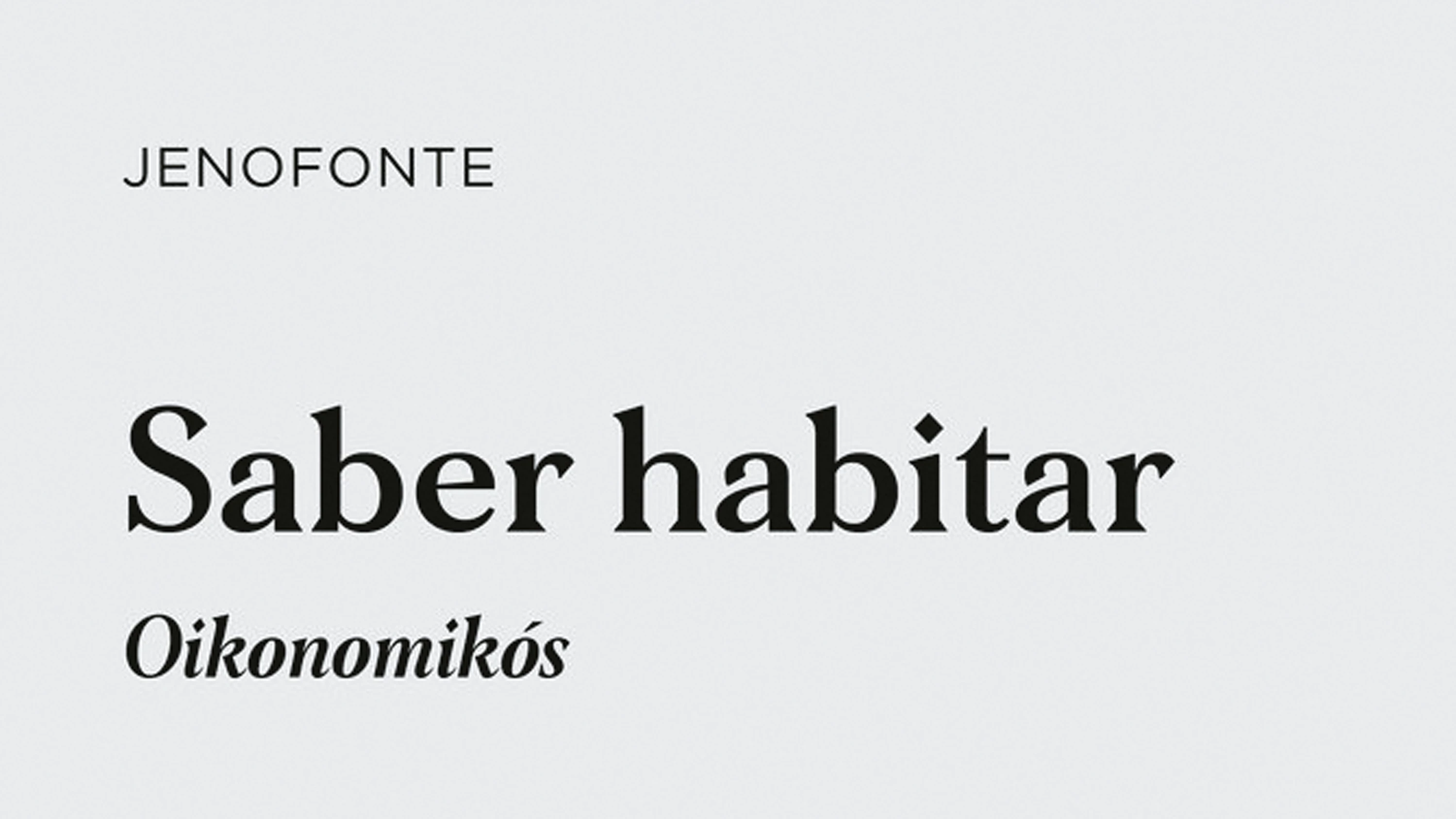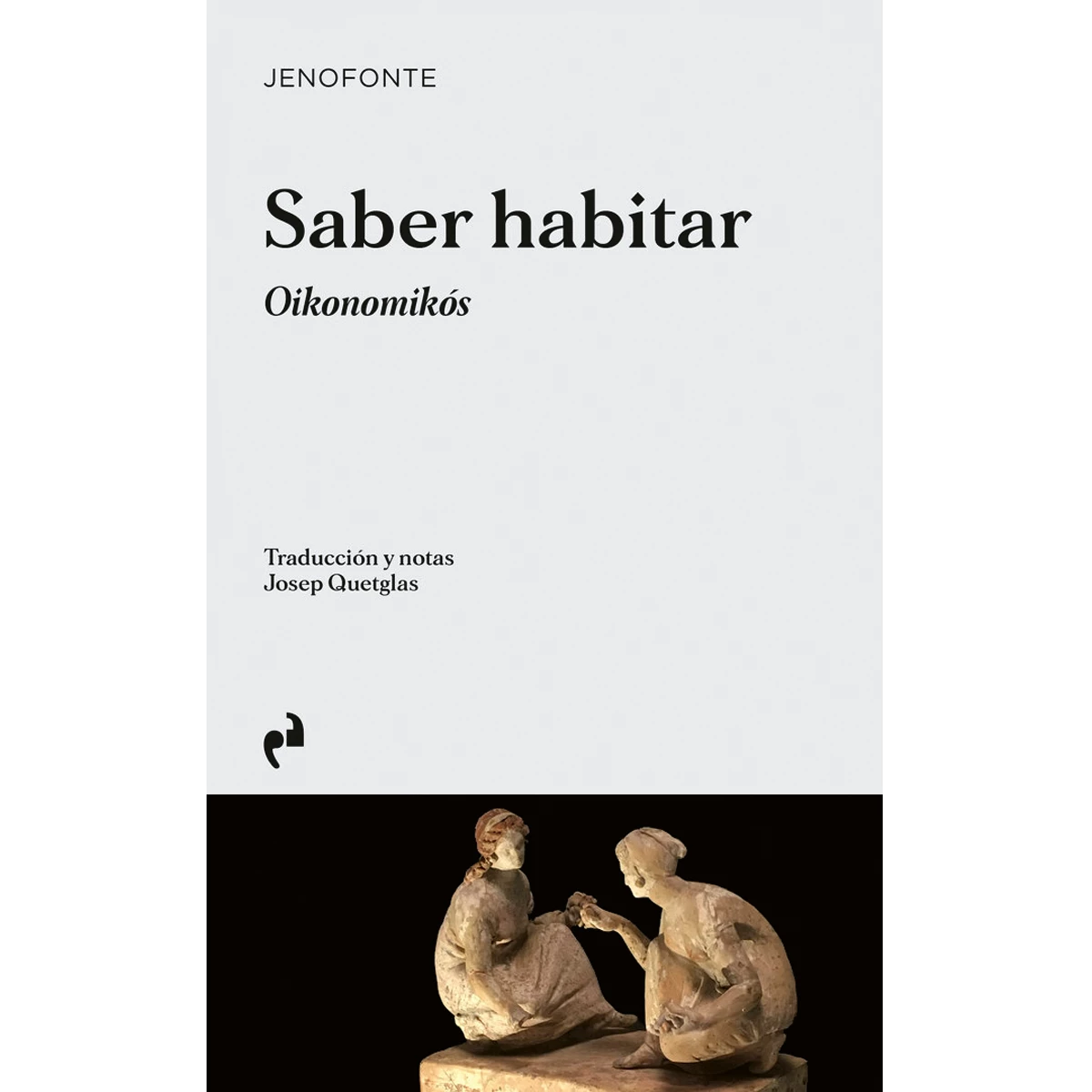
Xenophon came to be highly popular among students of classical Greece because the simplicity of his language was perfect for translation exercises, perhaps in the same way that Julius Caesar’s Commentaries on the Gallic wars helped many of us learn the rudiments of Latin. Nevertheless, the military leader, historian, and philosopher Xenophone’s coincidence in time with Plato (both were disciples of Socrates) has always weighed upon the reputation of the author of Anabasis, an Athenian and adoptive Spartan who, after participating in the March of the Ten Thousand under the Persian Cyrus the Younger, continued Thucydides’s historical narrative with Hellenica and wrote several Socratic dialogues, among them the Oikonomikós that Josep Quetglas now offers under a new title, Saber habitar.
Xenophon’s Oeconomicus is above all about domestic economics, besides agriculture, rural life, and the relationship between men and women, and its two parts are not very well bound together, having probably been written at different moments. The former has Socrates and the prosperous Critoboulus engaged in a dialogue on possessions, wealth, and household management, coming to the conclusion that farming is “more beautiful, good, and pleasing,” following which Socrates, in a second part, converses with the gentleman-farmer Ischomachus to learn how he runs his household, overseeing field world and his wife’s housekeeping and training of slaves.
This Socratic dialogue, translated into Latin by Cicerone and much read during the Renaissance, has in our time had two leading interpretations, one by Leo Strauss in Xenophon’s Socratic Discourse, which saw it as a critical presentation of virtue and nobility, and the other by Michel Foucault in the second volume of Histoire de la sexualité, where the chapter on ‘La maisonnée d’Ischomaque’ examines the farmer’s relationship with his wife as a manifestation of patriarchal power, on the assumption that the art of ruling is expressed the same way in the domestic as in the political or military realm. Citing both, Quetglas enriches the panorama with a new focus, which on one hand is suggested by its title, a protofunctionalist interpretation, and on the other by his presentation of the house as an inhabited orchard.
The protagonism of agriculture in this Socratic dialogue is justified by the weight of the agrarian population in Attica, but also by the political protagonism of the autonomous farmer after the devastation caused by war, seeing the return to the vineyard and the olive grove as the way to recover from the defeat and impoverishment of Athens. Quetglas encourages parallelisms with the Vienna of Loos in the wake of war, with the parks and gardens devoted to the growing of vegetables, legumes, and potatoes. Inspired by Leberecht Migge and Josef Popper-Lynkeus, the promoters of urban horticulture in the Weimar Republic, this protoecological attitude is important at a time when climate and health catastrophes call for a rethinking of the house and the city.
In any case, contemporary systems are also political, and to reflect on them, a useful text would be another Socratic dialogue by Xenophon, Hiero, on the pros and cons of despotism, which interested Machiavelli or Montesquieu, and it has in our time drawn the attention of Carl Schmitt, Leo Strauss, and Alexandre Kojève. Current troubles have their origin in our toxic relationship with nature, but also in the fracture of the consensuses that enable us to live together through acceptance of what we have in common.







